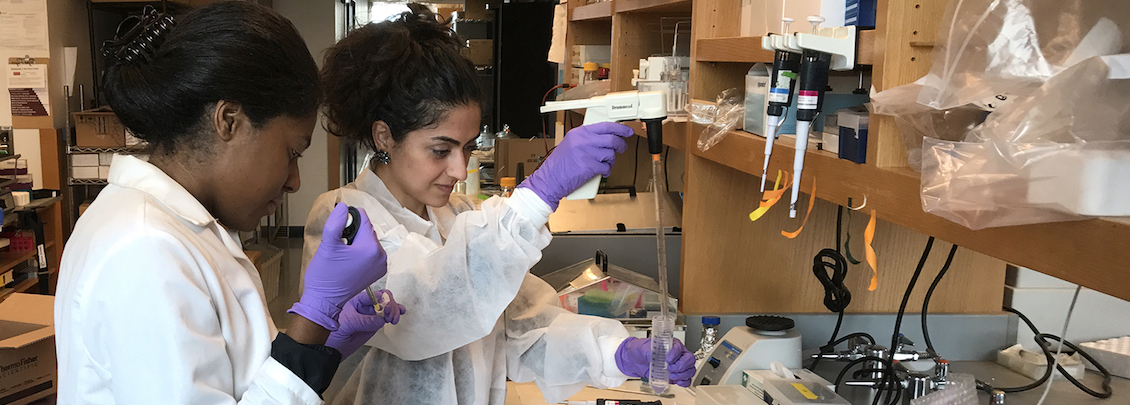Master’s in Nutrition and Metabolism

1 year | full-time

2 years | full-time or part-time

boston university medical campus
Nutrition and Metabolism – a graduate program focused on the relationships between nutrition, biology, biochemistry, health, and disease.
- Prepares students for careers in a range of settings including academics and industry
- Provides a stepping stone to future professional studies in medicine and dentistry or a PhD degree
- Trains students in basic, clinical, translational, and epidemiologic research
- Provides broad knowledge of biomedical sciences through the interdisciplinary curriculum
Program Highlights
- Study and carry out research under the guidance of a world-reknowned faculty
- Study nutritional and metabolic aspects of obesity, diabetes, heart disease, cancer, bone health, and more
- Small class sizes
- Personalized mentoring to support each student’s success
- Publish your research in a peer-reviewed journal
Reasons to Choose the Nutrition and Metabolism Program
Graduate degree from Graduate Medical Sciences at the Boston University Chobanian & Avedisian School of Medicine: The BU Medical Campus houses the Graduate School, the Medical School, Boston Medical Center, and the Goldman School of Dental Medicine. It provides a diverse campus for academic and professional growth for pre-medical, pre-dental, and pre-doctoral students.
Located in Boston: Boston is a vibrant city, rich in history, the arts, sports, medicine, and education.
Rigorous, graduate-level curriculum: Students take a rigorous 32 credit curriculum (28 course credits and at least 4 research credits) and conduct original research under the guidance of a faculty mentor. Students write and defend thesis based on their original research and have the opportunity to co-author scientific papers.
Strong Advising, Career Mentoring: For some, the masters degree is a stepping stone for admission to medical school, dental school, or a doctoral program. For others, it leads to direct entry into the work force as a research scientist or in other related fields.
Program Duration: The duration of the program is flexible. Most students take 1.5 – 2 years and complete the coursework in the first year followed by placement in a basic, clinical, or epidemiologic research lab. If necessary, the program can be completed in 12 months (1 calendar year). Part-time options are also available as well.
World-class Resources: Students will have access to many world-class resources including the the Clinical and Translational Sciences Institute, the Cancer Center, and the Whitaker Cardiovascular Institute.

Careers Outcomes
- Research scientist in industry (biotechnology, pharmaceutical, food science, or nutraceutical industries), medical, academia, or the public sector.
- Laboratory management, product management, research analyst
- Medical writer, scientific writer
- Project director or coordinator for nutrition-related clinical or epidemiologic studies
- Research or program management for government, non-profit, or community-based health and wellness programs.



